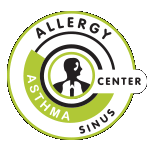Should children with asthma be tested for peanut allergy?
Forging a False Connection
During the recent American Thoracic Society meeting a study was presented that has caused a bit of a stir in the press. Headlines have included: “Many children with asthma have reaction to peanuts but don’t know it,” “The connection between peanut allergies(sic) and asthma,” and “Asthma symptoms in children may be a sign of peanut allergies(sic).” The authors of the study suggest that children with asthma should be routinely tested for peanut allergy. I think this is a bad idea and the American College of Allergy, Asthma and Immunology (ACAAI) agrees with me. Let’s look a bit at the study and the author’s incorrect conclusion.
This study, conducted by Dr. Robert Cohn from Mercy Children’s in Toledo, Ohio, looked at about 1,500 children who were actively followed in their clinic for asthma. They did a chart review and found that about 11% of the kids had a “documented history” of peanut allergy. They then looked at the 650 or so kids who had peanut tests and found that 22% of them had positive tests. They go on to say that 50% of the families were unaware of the peanut sensitivity and that, “We speculate that children with asthma might benefit from peanut sensitivity screening especially when control is difficult to achieve.”
This sort of 'fishing expedition' leads to incorrect diagnoses, false positive tests, and unnecessary anxiety and lifestyle modifications.
- First, a positive peanut test does NOT indicate peanut allergy. Peanut testing has a high false positive rate, especially in children who are otherwise allergic. Indeed, some studies have suggested that 80% of positive peanut tests are false positives. A positive test indicates sensitization, which is not the same as allergy.
- Second, food allergies do not play a role in asthma. Though food allergies can cause respiratory symptoms, usually in conjunction with hives and swelling, these symptoms occur within minutes of exposure to the offending food. They do not cause chronic, ongoing symptoms as found in asthma. Furthermore, they do not have any role in the ongoing inflammation that underlies asthma.
- Finally, routine testing for foods is never indicated without a history that is consistent with food allergy. This sort of “fishing expedition” leads to incorrect diagnoses, false positive tests, and unnecessary anxiety and lifestyle modification. It causes more questions than it answers.




